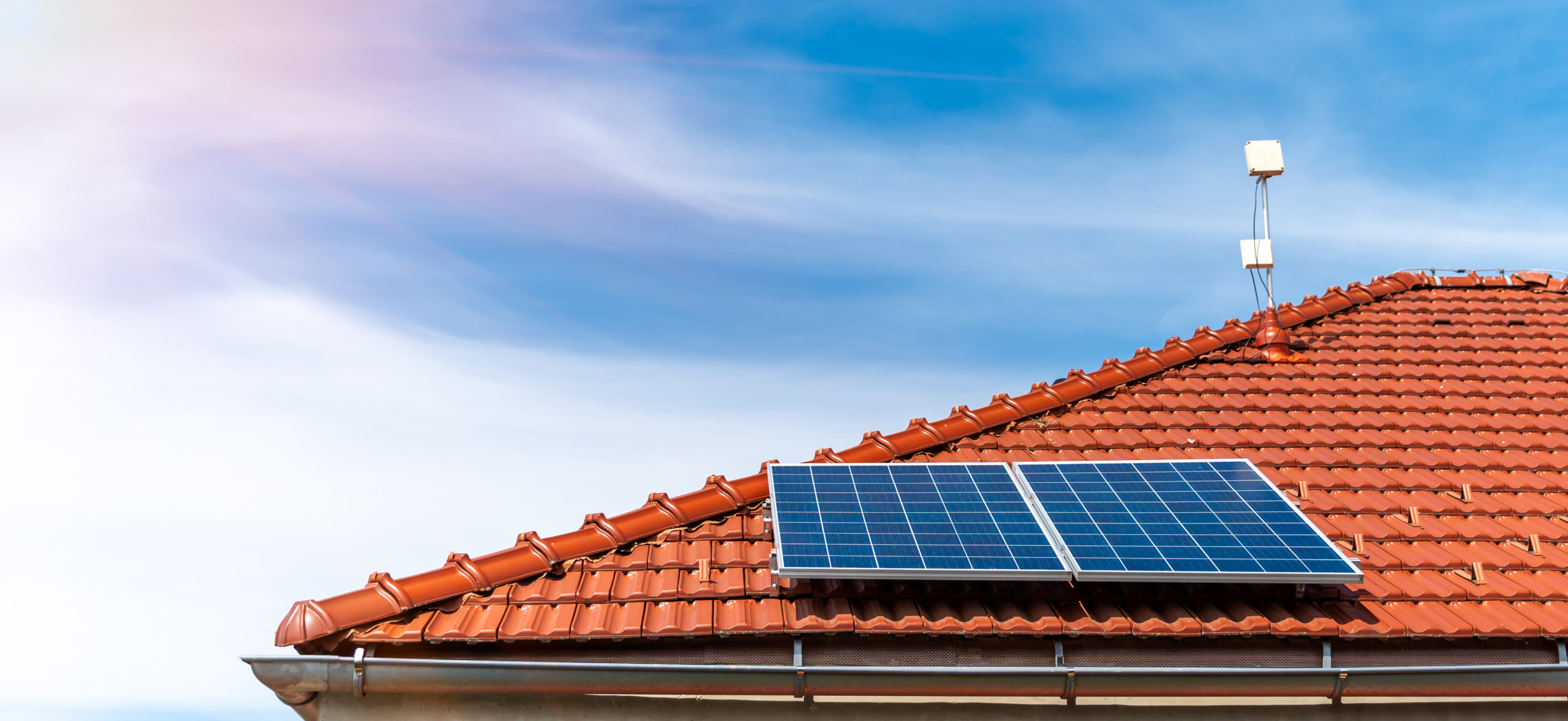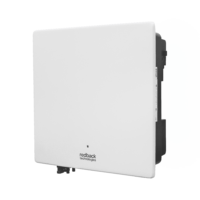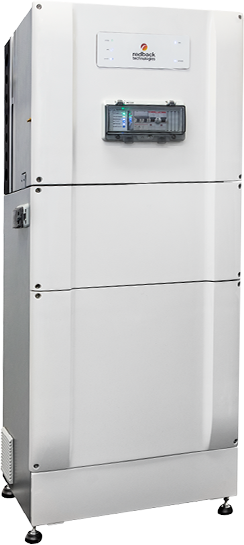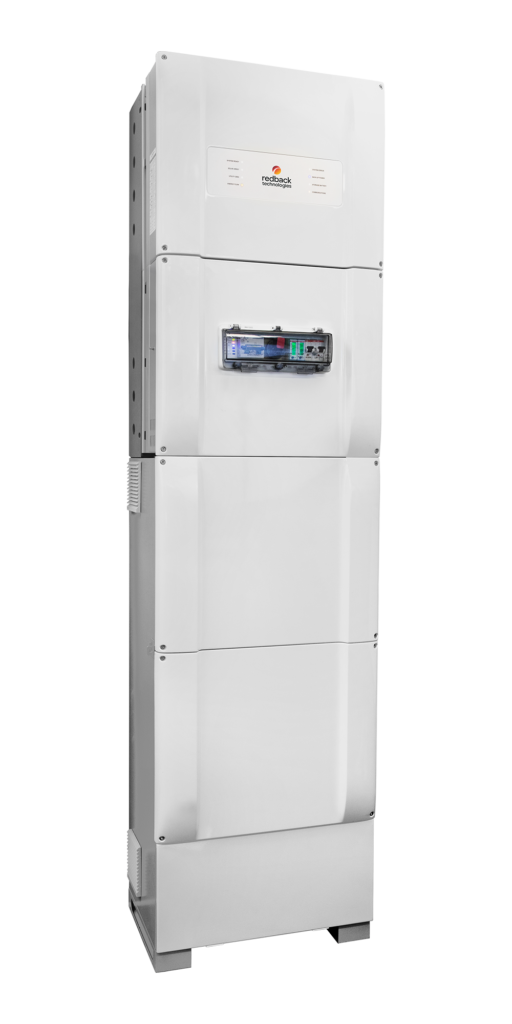What Type of Solar System is right for you?
Are you looking to join the 3 million Australian homes who have already installed a rooftop PV system? Each day more and more Aussies are thinking about going solar to combat rising energy costs, but with so many solar and battery systems on the market, it can be difficult to understand what type of system will work best for your household.
In order to help you understand the various options in the solar and storage market, we have outlined the differences between a solar inverter, a battery storage system, and a hybrid system.
The Basics
Solar power works by capturing the sun’s rays on rooftop solar panels during the daytime. Since the sun’s rays are captured in the form of DC (direct current) and a home requires AC (alternating current), you need a solar inverter to convert your self-generated power into useable electricity for your home.

Solar Inverters
 Solar inverters operate by converting the direct current (DC) captured by solar panels into alternating current (AC) that can be used in your home. Often referred to as grid-tied inverters, they come in many sizes, generally ranging from 5kW to 10kW, depending on the size of the residential home. While all these numbers may seem confusing at first, what they mean is quite simple. The size of the inverter refers to the amount of solar your inverter can convert into usable power at any given time.
Solar inverters operate by converting the direct current (DC) captured by solar panels into alternating current (AC) that can be used in your home. Often referred to as grid-tied inverters, they come in many sizes, generally ranging from 5kW to 10kW, depending on the size of the residential home. While all these numbers may seem confusing at first, what they mean is quite simple. The size of the inverter refers to the amount of solar your inverter can convert into usable power at any given time.
Adding rooftop solar plus a solar inverter to your home has several obvious benefits, including reducing your power bills and your carbon footprint. It’s important to note however that a solar system such as this will only power your home while the sun is shining, and will not work during a grid interruption, such as a blackout.
Redback Technologies’ Smart Inverter Series comes in 4 convenient sizes, so you can be sure to find the best fit for your household. If you want more information, check out our guide to choosing the right solar inverter for your home.
AC Coupled Battery Storage
 One of the main limitations of a rooftop solar system is that you can only benefit from your solar power during the hours when the sun is shining. When there is no sun, there is no free energy, and you rely on buying electricity from the grid.
One of the main limitations of a rooftop solar system is that you can only benefit from your solar power during the hours when the sun is shining. When there is no sun, there is no free energy, and you rely on buying electricity from the grid.
To overcome these limitations and to further reduce your reliance on your energy retailer, you can add battery storage to your existing solar inverter with an AC coupled battery solution.
Designed to work with most existing solar inverters, an AC coupled battery solution is the easiest way to add battery storage to your home’s existing solar system. This allows you to use more of your own, self-generated energy that your solar panels have produced and stored within your battery, which in turn reduces the need to buy electricity in peak periods, saving you even more on your power bills.
Another advantage of home battery storage is that it can provide you and your family protection in a power outage by enabling you to power essential appliances in your home with your stored battery power in the case of a blackout*.
For more information on AC coupled battery storage, check out Redback’s Smart Battery Series, which offers 3 convenient battery storage sizes so you can find the perfect fit for your home.
If you are unsure whether battery storage is right for you, you can start with rooftop solar and and inverter and add an AC coupled battery system at a later date.
DC Coupled Hybrid Systems
 A solar inverter combined with an AC coupled battery system converts all the electricity created from your rooftop solar from DC to AC to be used within your house, and then converts any excess power back to DC to charge your home’s battery. In contrast, a DC coupled hybrid system is much more efficient.
A solar inverter combined with an AC coupled battery system converts all the electricity created from your rooftop solar from DC to AC to be used within your house, and then converts any excess power back to DC to charge your home’s battery. In contrast, a DC coupled hybrid system is much more efficient.
A Hybrid inverter combines a solar inverter with battery storage, taking the power captured by your solar panels and only converting the amount that your house requires at that time into useable power for your home. The rest of the power generated by your solar panels is stored directly in your batteries.
From reducing your reliance on the electrical grid, to providing blackout protection in a power outage* for your essential appliances, a DC coupled hybrid system gives you all the benefits of an AC coupled system, but also offers several other key advantages. *When backup circuit is connected, and battery energy is available.
As an all-in-one modular unit, hybrid systems eliminates the need for a separate inverter and battery compartment, potentially reducing the overall cost of the system, and reducing the number of external cables needed on the side of your home.
During a grid interruption, a DC coupled hybrid system is also able to charge its batteries whenever the solar panels are producing electricity. This can be advantageous if the grid is down for a number of days, allowing the battery to recharge whenever the sun is shining.
A DC coupled hybrid system is also more efficient than an AC coupled system, as there is no need for the power generated by the panels to be converted from DC to AC and back to DC to charge the unit’s batteries.
Redback Technologies offers both single and 3-phase hybrid systems, with a range of storage options, so you can ensure you find the perfect fit for your home. Check out our single phase Smart Hybrid System and our Smart 3-Phase Hybrid System for more information.
Still unsure whether battery storage is right for you? Check out our guide on adding battery storage to your home.
Renewable energy is the way of the future. Be a part of that future today with Redback Technologies, your Australian choice for powering a cleaner tomorrow.

